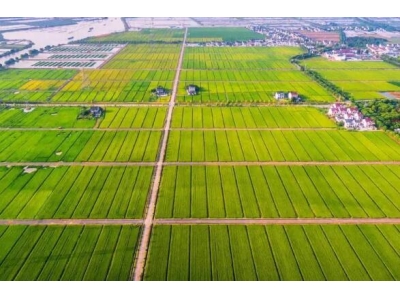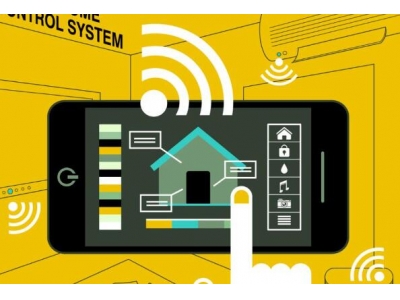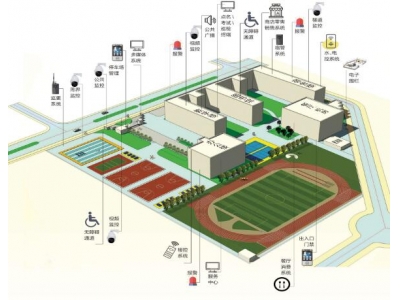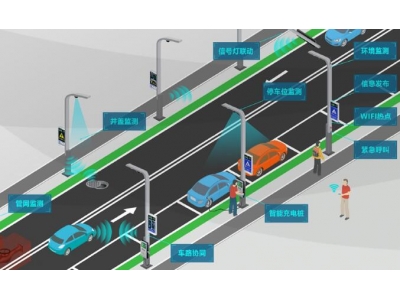一、农业现代化示范区的标准?
从耕地,撒种,打药收割一律机械化,合理种植作物,井形地块分布。
二、打造智慧教育示范区标准
打造智慧教育示范区标准
教育领域随着科技的不断发展,智慧教育已然成为当下的热门话题。如何打造智慧教育示范区,制定相应的标准成为教育机构和政府部门亟需解决的问题之一。本文将探讨如何在现有的基础上,通过创新和标准化,打造符合智慧教育示范区标准的理想模式。
教育数字化的重要性
教育数字化已经成为现代教育改革的重要内容。借助数字技术,教育资源得以优化配置,学生学习方式得以个性化,教学过程得以智能化。因此,打造智慧教育示范区标准需以数字化为基础。
标准体系建设
制定智慧教育示范区标准需要建立完善的标准体系,包括硬件设施标准、教育资源标准、教学模式标准等方面。只有建立科学合理的标准体系,才能确保示范区的建设能够达到预期效果。
智慧教育示范区建设
在打造智慧教育示范区标准的过程中,要注重示范区的建设规划。从空间布局、设施建设到教学环境,都需符合标准化要求,确保示范效果的最大化。
示范区管理模式
智慧教育示范区的管理模式也是关键因素之一。必须建立科学的管理机制,包括教育资源配置、师资培训、课程设置等方面,确保示范区长期稳定发展。
教育创新与标准化
教育创新与标准化并不矛盾,相反应当相互促进。只有在创新的基础上逐步探索出适合智慧教育示范区的标准化路径,才能实现教育的可持续发展。
结语
打造智慧教育示范区标准是一个复杂而长期的过程,需要教育部门、学校、企业和社会各界的共同努力。只有通过合作与创新,才能为教育事业注入新的活力,推动教育向更高水平迈进。
三、打造农业示范区,推动农业现代化进程
农业示范区的概念
农业示范区是指在某个地区内建设一批具有示范引领作用的现代农业示范基地,旨在促进农业生产技术创新、提高农业产业效率、推动农业现代化进程。通过示范区建设,可以推广农业科技成果、培育新型农业业态、提升农民收入、促进农村经济繁荣。
农业示范区的作用
农业示范区在农业现代化进程中具有重要的意义。首先,示范区可以承担起农业科技创新和成果转化的功能,将先进农业技术应用到实际生产中,提高农业生产效率和品质。其次,示范区可以培养新型农业经营主体,推动农业产业升级,培育农业新业态。再者,示范区可以带动周边地区的农业发展,形成农村经济聚集效应,促进农村经济的繁荣。同时,示范区还可以为农民提供就业机会,增加农民收入,提高农民生活质量。
农业示范区的建设要素
农业示范区的建设需要从多个方面进行考虑。首先,需要有优质的农业资源,包括土壤条件、气候环境等。其次,需要有科研力量和技术支持,可以为示范区提供前沿的农业科技成果和技术指导。再者,需要有人才支持,包括农业专业人才和管理人才,能够为示范区提供全方位的支持和服务。最后,还需要有政府的政策支持和资金投入,为示范区的建设提供保障和支持。
农业示范区的发展趋势
随着农业现代化进程的推进,农业示范区的发展也呈现出一些新的趋势。首先,农业示范区将更加注重可持续发展,推动农业生产和生态环境的良性互动。其次,农业示范区将更加注重产业融合,推动农业的多元化发展和综合利用。再者,农业示范区将更加注重科技创新,推动农业生产方式的转型升级。最后,农业示范区将更加注重农民利益保障,促进农民收入增长和农村发展的可持续性。
总结
农业示范区的建设对推动农业现代化进程具有重要的意义。通过打造农业示范区,可以推广先进农业技术、培育新型农业经营主体、促进农村经济繁荣。未来,农业示范区的发展将注重可持续发展、产业融合、科技创新和农民利益保障。希望通过本文的介绍,读者对农业示范区有更加深入的了解。
四、100个农业现代化示范区有什么好处?
对现代农业示范区,国家都有奖补政策,对奖补的范围,标准和程序都有明确的规定具体如下
(一)奖补范围
原则上在农业部认定的前两批153个国家现代农业示范区内,以县为单位择优评选符合条件的示范区。
(二)奖补标准
中央财政每年对选定的奖补示范区安排奖励资金1000万元,连续安排3年。其中,第一批开展农业改革与建设试点的21个示范区2015年继续安排1000万元,第二批开展农业改革与建设试点的4个示范区2015、2016年各安排1000万元。
(三)奖补程序
1.分配奖补指标。农业部、财政部商定年度奖补指标总数,并按照各省全覆盖、省内差额遴选、倾斜支持农业现代化水平较高的省及农业大省的原则,将奖补指标分配到各省。
五、红色智慧旅游怎么打造?
弄出地方特色,添加智慧元素,扩大宣传
六、nono怎么打造智慧芯片?
赛尔号NONO智慧芯片快速合成方法:中级模板芯片+任意一种矿产(光合能量、黄晶矿等)小型模板芯片+任意一种矿产(黄晶矿、豆豆果实等)也有失败的时候,或者得到别的芯片。
七、如何打造高效智慧课堂?
打造智慧课堂,是根据每个老师的不同情况而进行的,不同的老师有不同的授课风格,不能一刀切,要根据老师的情况,让老师有自己的教学特色。
老师的语言,要根据不同的学科设定属于自己的教学特点。理科要运用理科思维,文科要有文科的特点,打造课堂亮点,要根据不同的学科打造。
不同的年龄、不同性别的学生有自己的发展特点,课堂亮点也要根据学生客体的具体情况而定。
可以让花式课堂展现课堂亮点。比如让孩子在游戏里学习,在快乐当中学习,这样有利于孩子吸收知识。
打造课堂亮点,不应该脱离实际的教学目标。要围绕教学目标而设定。
八、国家级农业现代化示范区有什么好处?
农业现代化是国家现代化的基础和支撑,建设国家级农业现代化示范区是推进农业现代化的重要抓手,建设农业现代化示范区,是党中央、国务院作出的战略部署,对促进农业高质高效、乡村宜居宜业、农民富裕富足,为全面推进乡村振兴、加快中国特色农业农村现代化具有重要的示范带动作用
九、智慧城市示范区
智慧城市示范区已成为中国现代城市发展的重要战略,旨在借助先进的科技和信息技术,提升城市的管理和服务水平,为居民创造更加便捷、宜居的环境。智慧城市示范区的建设涉及多个领域和层面,需要政府、企业和居民的共同努力。
什么是智慧城市示范区?
智慧城市示范区是指针对特定区域开展智慧城市建设和应用的示范项目。通过在这些区域内推进信息化建设、智能化设施部署和数据共享平台的搭建,智慧城市示范区能够充分展示智慧城市的各项特点和优势。
智慧城市示范区的建设目标是提供高效的城市管理和公共服务,提升城市的可持续发展能力。通过整合城市资源和信息,实现城市各项服务的智能化、便捷化和个性化,为居民提供更好的生活品质。
智慧城市示范区的特点
智慧城市示范区具有以下几个显著特点:
- 智能化基础设施: 智慧城市示范区通过建设智能交通系统、智慧能源系统、智慧环保系统等基础设施,实现各项城市服务的协同高效运行。
- 数据共享和开放: 智慧城市示范区鼓励各个部门和企业共享数据,并通过开放API接口,促进创新应用和发展智慧产业。
- 智慧社区和居民参与: 智慧城市示范区注重社区居民的参与和反馈,在社区建设、公共服务和安全管理等方面提供便捷的智能化解决方案。
智慧城市示范区的发展意义
智慧城市示范区的建设对城市发展具有重要的意义:
- 促进城市可持续发展: 智慧城市示范区倡导绿色、低碳的城市发展模式,通过智能化的能源管理和环境监测,实现资源的有效利用和环境的可持续保护。
- 提升城市形象和竞争力: 智慧城市示范区通过先进的科技应用和智能化设施建设,展示城市的现代化形象,吸引投资和人才,提升城市的国际竞争力。
- 改善居民生活品质: 智慧城市示范区致力于提供更便捷、高效的公共服务,如智能交通、智慧医疗、智慧教育等,为居民创造更高品质的生活环境。
智慧城市示范区的案例分析
中国在智慧城市示范区建设方面取得了许多成功的案例,以下是一些典型示范区的介绍:
1. 北京中关村智慧城市示范区:作为中国科技创新的重要地区,中关村智慧城市示范区汇聚了大量科技企业和高等院校。该示范区通过信息化建设,实现了智能交通、智慧能源和智慧环保等方面的创新应用。
2. 上海张江智慧城市示范区:张江智慧城市示范区是上海浦东新区的重要科技园区,集聚了众多创新企业和研发机构。该示范区注重推动数字经济发展,建设了智慧工业园、智慧物流等创新平台。
3. 广州黄埔智慧城市示范区:黄埔智慧城市示范区是广州市的示范项目之一,以智能交通和智慧社区建设为重点。该示范区通过智能化设施和数据共享平台,提升了城市管理和服务水平。
智慧城市示范区的挑战和展望
智慧城市示范区的建设面临一些挑战,例如信息安全和隐私保护、智慧城市标准与规范等问题,需要政府和企业共同努力解决。同时,智慧城市示范区也面临着巨大的发展机遇,可以进一步推动城市现代化建设和创新产业发展。
展望未来,智慧城市示范区的建设将逐步扩大,涉及更多领域和城市,致力于打造更智能、更宜居的城市环境。随着技术的进步和创新的推动,智慧城市将成为现代城市发展的重要方向。
Translated Output: htmlSmart city demonstration zones have become an important strategic initiative for the development of modern cities in China. These zones aim to leverage advanced technology and information systems to enhance urban management and service levels, creating a more convenient and livable environment for residents. The construction of smart city demonstration zones involves multiple sectors and aspects, requiring joint efforts from the government, enterprises, and residents alike.
What are Smart City Demonstration Zones?
Smart city demonstration zones refer to pilot projects that focus on the construction and application of smart cities in specific areas. By advancing information technology infrastructure, deploying intelligent facilities, and establishing data sharing platforms within these areas, smart city demonstration zones can fully showcase the characteristics and advantages of smart cities.
The goal of constructing smart city demonstration zones is to provide efficient urban management and public services, ultimately improving the city's sustainable development capabilities. By integrating urban resources and information, these zones aim to achieve the intelligent, convenient, and personalized provisioning of various city services, ultimately providing residents with a better quality of life.
Characteristics of Smart City Demonstration Zones
Smart city demonstration zones possess the following notable characteristics:
- Intelligent Infrastructure: Smart city demonstration zones deploy intelligent transportation systems, smart energy systems, smart environmental protection systems, and other infrastructure to achieve the efficient and coordinated operation of various city services.
- Data Sharing and Openness: These zones encourage various departments and enterprises to share data and promote innovation applications and the development of smart industries through open API interfaces.
- Smart Communities and Resident Participation: Emphasizing the participation and feedback of community residents, smart city demonstration zones provide convenient intelligent solutions for community construction, public services, and security management.
Significance of Smart City Demonstration Zones
The construction of smart city demonstration zones carries significant importance for urban development:
- Promoting Sustainable Urban Development: These zones advocate for green and low-carbon urban development models. Through intelligent energy management and environmental monitoring, resources can be effectively utilized, and the environment can be sustainably protected.
- Enhancing Urban Image and Competitiveness: By leveraging advanced technological applications and intelligent infrastructure, smart city demonstration zones showcase a modern urban image, attract investment and talent, and enhance the city's international competitiveness.
- Improving Residents' Quality of Life: Smart city demonstration zones are committed to providing more convenient and efficient public services such as intelligent transportation, smart healthcare, and digital education, thereby creating a higher quality living environment for residents.
Analysis of Smart City Demonstration Zone Cases
China has achieved many successful cases in the construction of smart city demonstration zones. Here are some examples of typical demonstration zones:
1. Beijing Zhongguancun Smart City Demonstration Zone: As an important area for scientific and technological innovation in China, Zhongguancun Smart City Demonstration Zone gathers numerous technology companies and higher education institutions. This demonstration zone has achieved innovative applications in intelligent transportation, smart energy, and environmental protection through information construction.
2. Shanghai Zhangjiang Smart City Demonstration Zone: Zhangjiang Smart City Demonstration Zone is a key science and technology park in Shanghai's Pudong New Area, featuring many innovative enterprises and research institutions. This demonstration zone focuses on the development of the digital economy and has created innovative platforms such as smart industrial parks and logistics.
3. Guangzhou Huangpu Smart City Demonstration Zone: Huangpu Smart City Demonstration Zone is one of Guangzhou's demonstration projects, with a specific emphasis on intelligent transportation and smart community development. This demonstration zone has improved the city's management and service levels through the implementation of intelligent facilities and data sharing platforms.
Challenges and Outlook for Smart City Demonstration Zones
The construction of smart city demonstration zones faces several challenges, including ensuring information security and protecting privacy, as well as establishing smart city standards and regulations. These challenges require joint efforts from governments and enterprises to address. However, smart city demonstration zones also present tremendous development opportunities that can further promote urban modernization and the development of innovative industries.
Looking ahead, the construction of smart city demonstration zones will gradually expand, encompassing more sectors and cities, with the aim of creating smarter and more livable urban environments. With advances in technology and the drive for innovation, smart cities will become a crucial direction for the development of modern cities.
十、打造多彩智慧公路建议意见?
紧紧围绕交通运输部“加快发展综合交通、智慧交通、绿色交通、平安交通”的要求,以及《上海市交通发展白皮书》所提出的交通行业发展目标,以“大交通”管理体制改革为契机,以信息化与行业业务的深度融合为抓手,以“互联网+”行动计划为指导,明确智慧交通建设战略任务,创新信息服务






